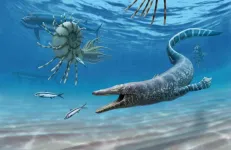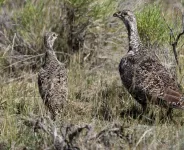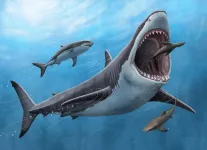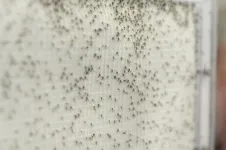(Press-News.org) Guilt. It’s a horrible feeling that causes us to question our worth as human beings. But while it’s something that induces sleepless nights and stress-related physical symptoms in individuals, for society at large, the tendency toward guilt might have some benefits.
“People who are prone to feeling guilt in their everyday lives are less likely to take bribes,” said UC Santa Barbara psychology professor Hongbo Yu, who specializes in how social emotions give rise to behaviors. He is a senior author of a paper that appears in the journal Social Psychological and Personality Science.
In a study he conducted in collaboration with partners at East China Normal University and Zhejiang Normal University, Yu looked at guilt not as an episodic state — such as how we feel after specific instances in which we hurt someone — but rather as a personality trait, in which people tend to worry about the potential harm their actions cause.
“So I could be a person for whom it is really easy to feel guilt in my everyday life,” he explained, “while others might be less likely to feel guilt, or have a higher bar for feeling that emotion.”
We all can probably intuit that anticipatory guilt might make us think twice before undertaking an action with potentially bad consequences for others. But what has been less clear is how this crucial morality-related personality trait affects decision makers in situations involving temptation and incentives, balanced against potential harm to others.
“The question was whether the trait of guilt is associated with a lower probability of engaging in corrupt behavior,” Yu said.
In their study, the researchers concentrated on bribery, an act in which a person that typically has some level of power and influence is tempted to act illegally or unethically in exchange for favors or gifts from someone who wishes to use that influence unfairly for their gain.
In one of the researchers’ online experiments, participants were asked to fill out a questionnaire to record both demographic and personality information, and also their fairness concerns. They also participated in one of two scenarios. The first one put them into the role of an arbitrator with the power to assign students grades. They were each paired with a “co-player,” who, unbeknown to them, was fictitious. The co-players (in this case the fictitious students who had been graded) would attempt to bribe the participants to change their grades in exchange for a portion of the reward the co-players would receive for passing the test above a certain threshold.
The second scenario gave each participant 100 tokens, ostensibly to donate to a children’s charity, such as UNICEF. Then co-players attempted to bribe the participants to give them the money, in exchange for keeping a certain portion for themselves.
“So the structure of the two scenarios is similar, but the critical difference is that in the charitable donation scenario, the victim is obvious,” Yu said. “The first scenario is more of just a violation of moral principle.”
As would be expected, participants who scored high in guilt-proneness (from the questionnaire) were less likely to accept a bribe in either of the two scenarios. The effect was more pronounced in the charitable donation scenario.
“You know someone’s going to get hurt,” Yu said. “In the paper we argue that when the victim is more salient, the association between the guilt trait and corrupt behavior becomes stronger.” Concern for others’ suffering, they said, might play a significant role in how guilt-proneness influences bribe-taking behaviors.
This study joins a growing body of work that associates guilt-proneness with fewer unethical decisions, such as cheating for personal gain and counterproductive work behaviors. But it’s important to note that this study is correlational, Yu said. “We can’t make a causal claim that if we make people more guilt-prone, we will necessarily see less corruption. That needs more research.”
Indeed, the researchers say, guilt proneness is not the only trait that might predict corrupt behaviors (or lack of them), and it’s worth studying how this trait, along with other personality traits, might “serve as a reliable anti-corruption predictor in personnel selection,” such as when choosing people for leadership positions or for high-stakes jobs.
“We can’t claim causality, but we can leverage the association between the guilt trait and the lower likelihood of corruption to make us more confident about their integrity,” Yu said. “Maybe that’s something we can apply to the real world.”
END
People in power who are guilt-prone are less likely to be corrupt
2023-06-26
ELSE PRESS RELEASES FROM THIS DATE:
UNF professor & Bureau of Land Management team discover ancient marine reptile fossil, publish ground-breaking evolutionary insight
2023-06-26
University of North Florida faculty member Dr. Barry Albright is part of a research team led by the Bureau of Land Management (BLM) who have unlocked new evolutionary information following the discovery of a 94-million-year-old mosasaur in the gray shale badlands of the National Park Service Glen Canyon National Recreation Area in southern Utah. Mosasaurs are fully marine-adapted reptiles that swam the seas while dinosaurs ruled the land. The ground-breaking research was just published in Cretaceous Research.
The journey began nearly 11 years ago as Scott Richardson, a trained volunteer working under Dr. Albright, searched for fossilized remains of creatures ...
Research questions value of sagebrush control in conserving sage grouse
2023-06-26
Efforts to improve sage grouse habitat through conventional management practices may be ineffective -- and even counterproductive -- according to research by University of Wyoming and other scientists.
Sagebrush reduction strategies, including mowing and herbicide application, are often employed to enhance habitat for the greater sage grouse and other sagebrush-dependent species. The theory is that clearing large sagebrush shrubs improves food sources in sage grouse nesting and brood-rearing habitats by allowing ...
Study: Potential new treatment identified for liver disease
2023-06-26
Researchers at the University of California San Diego School of Medicine have led a study to examine a potential new treatment option for patients with nonalcoholic steatohepatitis (NASH)-related fibrosis.
The results, published in the June 24, 2023, online edition of The New England Journal of Medicine, found that a drug that mimics a hormone in the body improved both liver fibrosis, or scarring of the liver, and liver inflammation in patients with NASH.
“Identifying an effective drug for NASH is extremely promising for patients as currently there are no FDA-approved therapies for this condition,” said Rohit Loomba, MD, the ...
Best papers of 2022 announced by SPIE Journal of Applied Remote Sensing
2023-06-26
BELLINGHAM, Washington, USA — The Journal of Applied Remote Sensing (JARS) has honored four of its best papers published in 2022. The awards recognize the journal’s best student paper, as well as papers in interdisciplinary applications, theoretical innovation, and photo-optical instrumentation and design.
JARS is published online in the SPIE Digital Library by SPIE, the international society for optics and photonics, and optimizes the communication of concepts, information, and progress among the remote-sensing ...
Study finds human impact on wildlife even in protected areas
2023-06-26
HOUSTON – (June 26, 2023) – By 2030, if the 30 by 30 initiative supported by more than 100 countries is successful, 30% of our land and ocean ecosystems will be designated protected areas meant to safeguard biodiversity and help limit the impacts of climate change.
However, a study by Rice University ecologist Lydia Beaudrot and collaborators reports for the first time that tropical mammals living inside protected areas are not spared the effects of human activity even when it occurs outside of the protected boundaries.
Based on the ...
University of Oklahoma researcher to use NSF CAREER Award to study local community's disaster resilience
2023-06-26
University of Oklahoma assistant professor Xiaochen (Angela) Zhang, Ph.D., has received a prestigious Faculty Early Career Development Award, known as a CAREER award, from the National Science Foundation to study how relationships among non-profits, community groups and local government agencies can improve disaster resilience, resource allocation, and emergency management by enabling organizational interactions, rather than top-down responses.
Zhang, who is an assistant professor of public relations for the Gaylord College ...
Research Brief: Investing in nature improves equity, boosts economy
2023-06-26
MINNEAPOLIS/ST. PAUL (06/26/2023) — A new study shows that current trends in environmental degradation will lead to large economic losses in the coming decades, hitting the poorest countries hardest. But there is hope: investing in nature can turn those losses into gains.
Researchers from the University of Minnesota and Purdue University published their findings in Proceedings of the National Academy of Sciences. The team developed a first-of-its-kind, global earth-economy model to capture interactions ...
New geochemistry research confirms megalodon shark was warm-blooded
2023-06-26
William Paterson University PRESS RELEASE
EMBARGOED UNTIL MONDAY, JUNE 26, 2023, 3:00 PM EST
WAYNE, NEW JERSEY — A new study shows that the gigantic Megalodon, or megatooth shark, was warm-blooded. This latest research on the Megalodon, which lived in the world’s oceans from 23 million to 3.6 million years ago and measured about 50 feet in length, appears in the peer-reviewed journal Proceedings of the National Academy of Sciences.
The study, conceived of and led by Michael Griffiths ...
Megalodon was no cold-blooded killer
2023-06-26
The largest marine predator that ever lived was no cold-blooded killer.
Well, a killer, yes. But a new analysis by environmental scientists from UCLA, UC Merced and William Paterson University sheds light on the warm-blooded animal’s ability to regulate its body temperature — and might help explain why it went extinct.
After analyzing isotopes in the tooth enamel of the ancient shark, which went extinct about 3.6 million years ago, the scientists concluded the megalodon could maintain a body temperature that was about ...
UCalgary study provides insight into how an infectious parasite uses immune cells as a Trojan Horse
2023-06-26
University of Calgary researchers have discovered how Leishmania parasites hide within the body to cause Leishmaniasis. The tiny parasites are carried by infected sand flies. Considered a tropical disease, one to two million people in more than 90 countries are infected every year. Effects range from disfiguring skin ulcers to enlarged spleen and liver and even death.
This chronic disease has been difficult to detect in the early stages. Scientists realized that the parasite was somehow manipulating immune cells but this process had not been well understood.
“This is the first study that shows how the parasite stalls the process of regular ...








